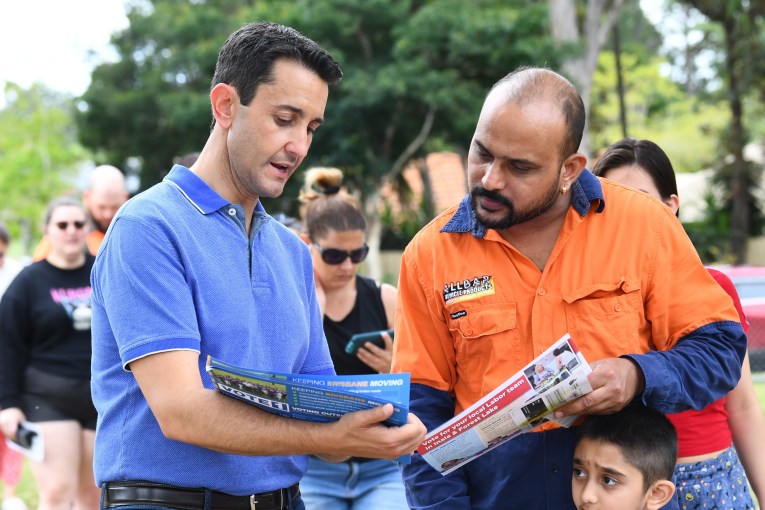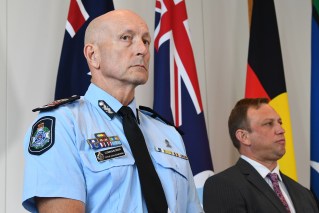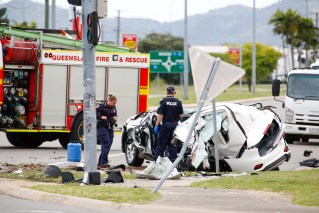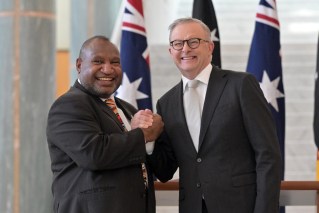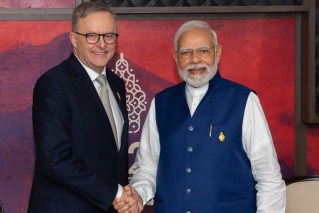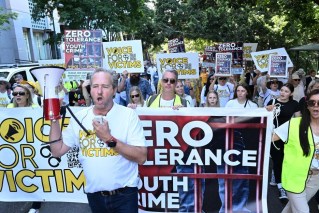In politics, it’s not what you know, but what you don’t know, that is most dangerous
Painted as bad news for Prime Minister Scott Morrison, the return of Barnaby Joyce to the National Party leadership actually helps clear some of the air ahead of a potential year-end election, writes Dennis Atkins

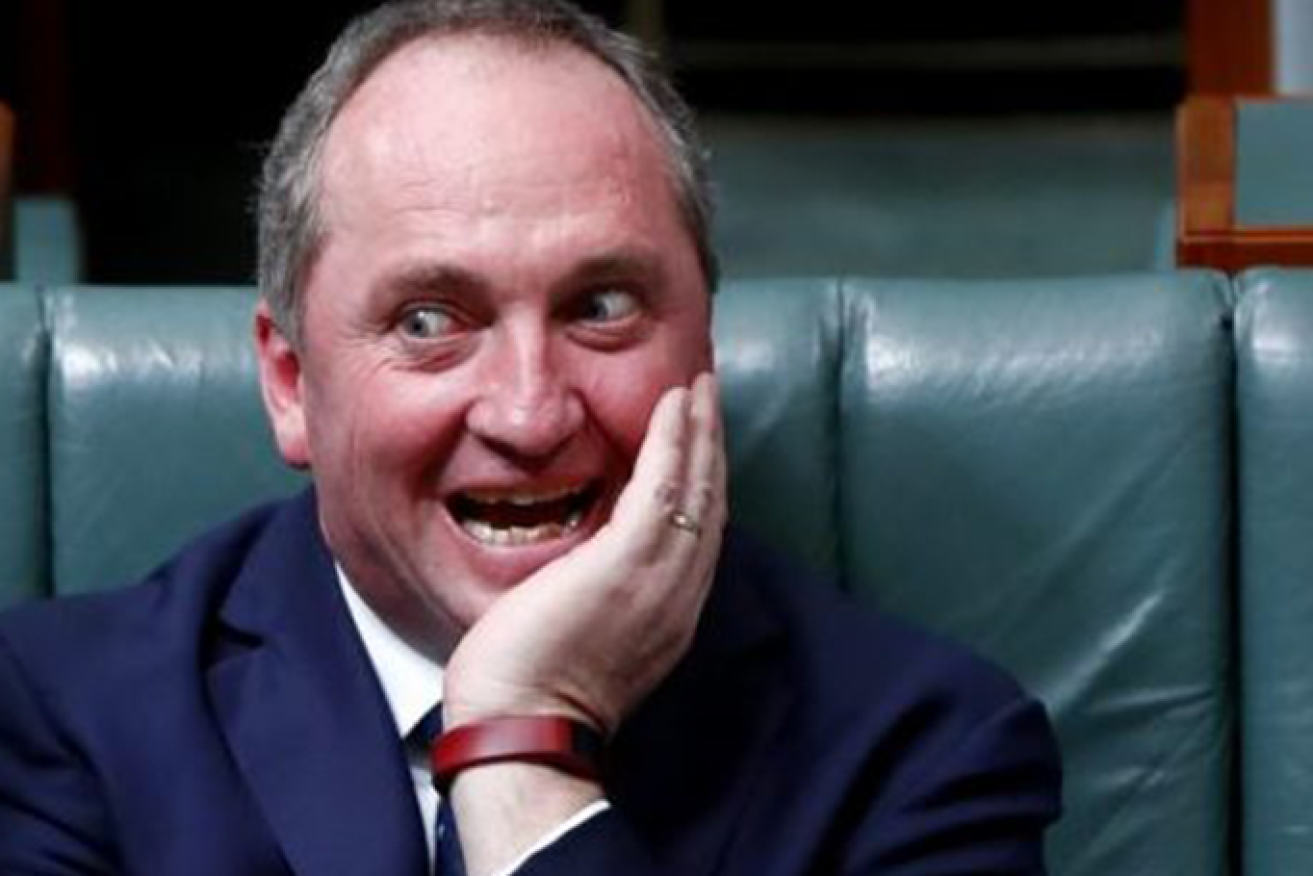
Barnaby Joyce and his National colleagues have secured a long list of concessions over net-zero reductions. (Image: AAP)
Former United States Defence Secretary (and one time Illinois Republican, counsellor to Richard M Nixon as well as chief of staff to President Gerald Ford) Donald Rumsfeld is the most unlikely of political philosophers.
A hardball reflex player, Rumsfeld typifies the unsentimental, take no prisoners approach of conservative American politics.
However, during his very influential, very expensive and very consequential time as George W Bush’s Defence Secretary, he outlined a guiding formulation of risk in modern politics.
During a Pentagon news briefing in February 2002, Rumsfeld was asked about the lack of evidence of weapons of mass destruction, used as the trigger to invade Iraq a year later.
“Reports that say that something hasn’t happened are always interesting to me, because as we know, there are known knowns; there are things we know we know,” said the slow-talking midwesterner.
“We also know there are known unknowns; that is to say we know there are some things we do not know. But there are also unknown unknowns—the ones we don’t know we don’t know. And if one looks throughout the history of our country and other free countries, it is the latter category that tends to be the difficult ones.”
It was a brilliant journey around risk, whether it is military, political or community. Just think about the pandemic we’re in the middle of. What’s the thing that keeps us up at night? It’s the unknown unknowns.
Scott Morrison is beset by unknown unknowns, from the lower end of the risk calculus encompassing the economic outlook, through the health minefield of COVID-19 to the whack-a-mole surprises accompanying any leadership position.
Morrison encountered an unknown unknown this week when the National Party kicked up some dust and ditched its leader, Michael McCormack in a revenge power grab by Barnaby Joyce.
It looked like nothing but bad news for Morrison. On its face, it’s a return to the days of destabilised, revolving door leadership, it’s yet another eruption of the climate wars within Coalition ranks (a decade-plus battle that has claimed four Liberal leaders) and it bruises the otherwise almost unchallenged authority of the prime minister.
On a very narrow front, it looks like it is at least a speed bump in Morrison’s very slow, very calculated journey to a “net zero emissions target preferably by 2050” position.
The 2050 target-target is pencilled (definitely no ink) into Morrison’s to-do list for 2021 with a “before the November UN conference in Glasgow” footnote.
This looks like there’s no upside. Well, no. This could be the best outcome for Morrison, making that “very narrow” path to victory Morrison talked about in mid-March a little easier to traverse.
This might run against the conventional wisdom but such orthodox thinking looks very pre-pandemic these days. There is no new normal, just a new set of calculations, all much more utilitarian and consequentialist than what went before. The choices are difficult but logical.
Morrison needs to be able to walk both sides of the street convincingly if he is to survive the climate wars and not go the way of McCormack or, in days past, Malcolm Turnbull (twice) or Brendan Nelson.
He won’t (and can’t) bring himself to close the circle on the 2050 target by dropping the word “preferably” because such a small amendment could set off genuine consequences. The Nationals might really revolt, walk away from the Coalition and the Liberal Party could be dropped into a period of chaotic uncertainty.
Morrison knows the world is moving to net-zero – he’s been told it every time the issue comes up in global leader Zoom calls or, more recently, face-to-face summits like the G7-plus meeting in Cornwall in southern England.
Morrison’s emissions hesitancy was behind the cold shoulder he got from US president Joe Biden and he’s been told he has to make a statement before the Glasgow summit if he’s going to be at the top table or in the observers’ corner.
Morrison wants to be able to stick to his “preferably” line so he can maintain the appearance of being in favour of moving to net zero while also appearing to resist following the US, Britain and other nations down the urgent action path.
It’s a classic “both sides of the street” tactic but it is high risk. There are lots of unknown unknowns and known knowns as well. Plenty can go wrong and the calculus can spin against you.
The reemergence of Joyce – the anti-net zero crusader – gives Morrison strong, tangible cover for strolling up and down carbon street, wandering from side to side.
This is a classic Morrison utilitarian political calculation. However, it does have a shelf life. This tactic only works if Morrison goes to an election before the November Glasgow conference. If he doesn’t make that deadline, the number of unknown unknowns rises sharply.
What are the alternative courses of action? Two stand out: Morrison sticks a pin in “net-zero by 2050” and splits the Coalition or the Nationals walk away on the assumption of the pin being stuck in.
It would be preferable if Morrison could keep his “aspiration” alive and keep the Nationals happy about the possibility nothing will happen.
These factors are further compelling reasons Morrison will wave the starting flag on an early election within weeks. It could be as early as August 7 or might not be until after the grand final season at the end of September, early October.
It’s the real back story to the return of Barnaby Joyce.
